
- Company
- Services
- UI/UX Design Services
- Microsoft Dynamics 365
- Mobile App Development
- AI Software Development
- Web App Development
- Generative AI Development
- Digital Product Development
- Enterprise Mobility
- SaaS Application Development
- Application Integration
- White-label WP Maintenance
- ERP Software Solutions
- Software Testing
- Offshore Development Center
- Let’s Connect
- Trending
- Technology
- Industry
- Build Your Team
- Our Work
- Company
- Services
- UI/UX Design Services
- Microsoft Dynamics 365
- Mobile App Development
- AI Software Development
- Web App Development
- Generative AI Development
- Digital Product Development
- Enterprise Mobility
- SaaS Application Development
- Application Integration
- White-label WP Maintenance
- ERP Software Solutions
- Software Testing
- Offshore Development Center
- Let’s Connect
- Trending
- Technology
- Industry
- Build Your Team
- Our Work
We use cookies and similar technologies that are necessary to operate the website. Additional cookies are used to perform analysis of website usage. please read our Privacy Policy
Inventory Management System: Features, Benefits, Types and Cost
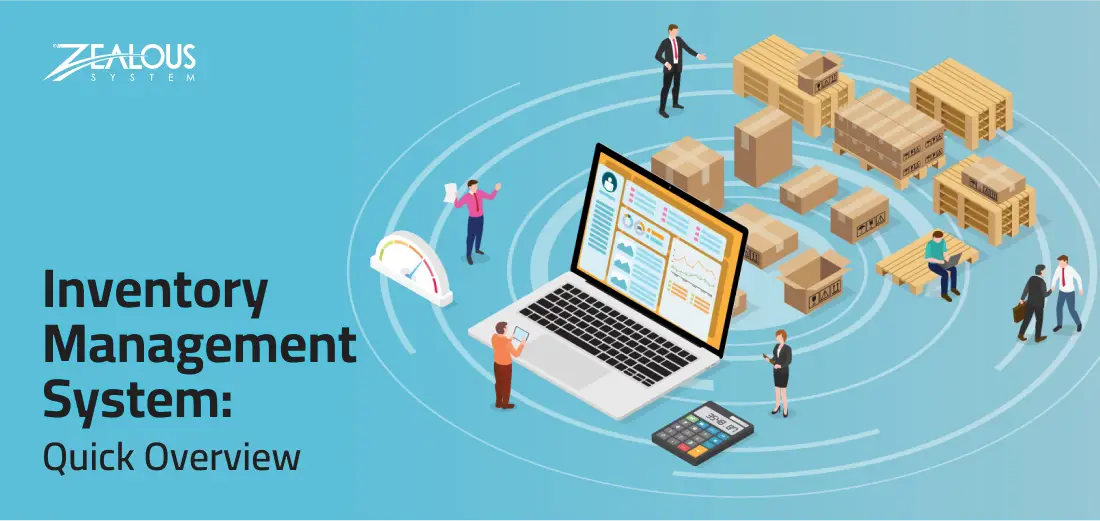
In the world of businesses, managing inventory is like keeping track of inventory on shelves—making sure you have enough for customers without having too much that becomes a problem.
Many businesses face challenges with this, leading to issues like running out of products or having too much that goes to waste. Globally, businesses lose billions each year due to these inventory hiccups. This is when Inventory Management Systems (IMS) came into the picture. In this blog, we’re going to explore what these inventory management systems are all about.
If you are into the supply chain management industry, you know how no-or-over-stock situations are anticlimax and can affect your business reputation and profits in ways you can’t imagine. Spilling some disturbing facts – the cost of inventory distortion global, including overstock, stockouts, and shrinkage, was estimated at around USD 1.1 trillion. Feeling the letdown, now? Thereby, an inventory management software helps you streamline the effectiveness of the supply chain over round the clock.
We’ll break down their key features, benefits, and how they can completely change the game for businesses, big or small.
By the end of this blog, you will have a clear idea of inventory management systems, their latest technologies, and the cost of building a custom inventory management system.
Let’s explore.
What is Inventory Management?
Inventory management is like the conductor of commerce, overseeing and optimizing the movement of goods within a business. It’s the careful process of maintaining the right amount of stock to avoid running out of products and dealing with the financial burden of excess inventory. Efficient inventory management is the key to transforming chaos into a well-coordinated operation, influencing every aspect of business.
What is an Inventory Management System?
Simply put, the Inventory Management System (IMS) works as the conductor’s assistant in commerce. This digital tool removes the mistakes and inefficiencies associated with manual inventory management by automating and streamlining inventory processes. With its automated alerts, intelligent reporting, and real-time updates, an IMS can move companies toward efficiency and strategic decision-making. It’s the tool that takes companies from just existing to truly flourishing.
The following graph shows the market size of inventory management systems by 2029:
Source: Data Bridge Market Research
Why Should You Invest in Inventory Management Software?
Why consider investing in IMS? The benefits of inventory management software are real and measurable. Here are potential reasons to invest in inventory management software:
- Operational Efficiency: Inventory management software streamlines processes, reducing manual efforts and minimizing errors, leading to increased operational efficiency.
- Cost Savings: Efficient control of inventory prevents overstocking and understocking, optimizing stock levels and reducing carrying costs, ultimately saving money.
- Customer Satisfaction: Fewer stockouts lead to better product availability, improving customer satisfaction and fostering loyalty.
- Data-Driven Decision-Making: Access to real-time data enables businesses to make informed decisions, optimize stock levels, and respond quickly to market changes.
- Return on Investment (ROI): The overall result is a significant ROI as businesses operate more efficiently, meet customer demands, and make strategic decisions based on reliable data.
Key Features of Inventory Management Software
As an Inventory Management Software development company, here are the key features we consider in an ideal IMS:-
Real-Time Inventory Tracking:
The capacity to offer real-time inventory tracking is one of the primary features that set ideal Inventory Management Software (IMS) apart. Businesses can minimize the risk of stockouts or overstock situations by using this feature, which enables continuous stock level monitoring and facilitates efficient decision-making. This real-time, actionable insight allows businesses to maintain ideal stock levels and a more seamless and effective supply chain.
Automated Purchase Order Management:
Efficient inventory management systems excel in automating the purchase order process. This feature streamlines the procurement workflow, automatically generating orders based on predefined inventory thresholds. This not only reduces manual workload but also helps prevent stockouts by ensuring timely replenishment, ultimately contributing to a more organized and responsive inventory management process.
Streamlined Sales Order Processing:
Another integral feature of Inventory Management Software is its capability to streamline sales order processing. This includes automating order fulfillment, tracking sales in real time, and ensuring accurate order deliveries. By integrating seamlessly with other business processes, IMS enhances overall efficiency, reduces errors in order processing, and enhances customer satisfaction through timely and accurate deliveries.
Timely Alerts for Inventory Management:
The proactive nature of a robust inventory management system is reflected in its timely alert system. This feature notifies users about critical events such as low stock levels, pending orders, or potential discrepancies. Timely alerts empower businesses to take swift actions, preventing stockouts or overstock situations, and maintaining a well-balanced inventory that aligns with market demands.
Comprehensive Reporting and Analytics:
A feature-rich IMS provides comprehensive reporting and analytics tools. This feature allows businesses to gain valuable insights into their inventory performance, supplier relationships, and overall supply chain efficiency. Customizable reports and analytics empower decision-makers with data-driven insights, facilitating strategic planning, and continuous improvement in inventory management processes.
Key Types of Inventory Management Software:
Inventory management software comes in various types, each catering to specific needs and business sizes. Choosing the right one depends on your industry, inventory complexity, and budget. Here’s a breakdown of the main types:
1. Perpetual Inventory Systems
- These systems continuously track inventory levels in real-time as items are bought, sold, or moved.
- They use barcode scanners or point-of-sale (POS) systems to automatically update inventory records.
- This provides the most accurate and up-to-date inventory data, but it can be more expensive and complex to implement.
2. Periodic Inventory Systems:
- These systems track inventory levels at regular intervals, such as monthly or quarterly.
- Physical counts are conducted to verify the accuracy of the records.
- This method is less expensive and complex than perpetual systems, but it can be less accurate and timely.
3. Enterprise Resource Planning (ERP) Systems:
- These are comprehensive software suites that integrate inventory management with other business functions like accounting, manufacturing, and CRM software.
- They offer advanced features like demand forecasting, purchase order management, and production planning.
- ERP systems are ideal for large businesses with complex operations and diverse inventory needs.
4. Warehouse Management Systems (WMS):
- These systems are specifically designed for managing inventory in warehouses.
- They offer features such as bin location tracking, picking and packing automation, and shipping management.
- WMS are essential for businesses with large or complex warehouses.
5. Cloud-Based Inventory Management Systems:
- Cloud-based inventory management systems are hosted in the cloud, which means you can access them from anywhere with an internet connection.
- They are typically easier to set up and use than on-premise systems, and they offer scalability and flexibility.
- Cloud-based systems are a good option for businesses of all sizes.
Key Advantages of Inventory Management Software: A Boost for Your Business
Inventory management software (IMS) has become an essential tool for businesses of all sizes. No longer just for large corporations, these advanced systems offer a wide range of benefits that can improve efficiency, reduce costs, and boost your bottom line. Here are some of the key advantages you can expect to enjoy by implementing an IMS:
Increased Accuracy and Efficiency:
One important advantage of Inventory management software (IMS) is the increased accuracy and efficiency it provides to your company’s operations. IMS ensures accuracy in inventory management, minimizing errors and streamlining procedures for a more efficient workflow by automating tedious manual tasks like tracking stock levels and managing reorder points.
Improved Stock Levels and Cost Savings:
Businesses can use Inventory management software to analyze real-time data to optimize their stock levels. This tactical move lowers carrying costs and minimizes monetary losses by avoiding overstocking or stockouts. The advantage of IMS is its capacity to assist companies in maintaining an ideal supply and demand balance, which results in significant cost savings.
Enhanced Productivity and Time Savings:
Your team will be more productive when inventory management software is implemented. Routine inventory tasks can be automated to free up staff time for more strategic endeavors, which increases output overall. One of the main benefits of Inventory management software is that it saves time, which helps companies allocate resources more effectively.
Accurate Demand Forecasting:
One of IMS’s most important features is its ability to give precise insights into demand trends. Businesses can make well-informed decisions regarding inventory levels and product availability by examining past data and market trends. This guarantees that the appropriate products are available when needed, satisfying consumer requests and raising general customer satisfaction.
Better Order Fulfillment:
Inventory Management Software benefits in order fulfillment procedures by guaranteeing precise and on-time delivery. Stockouts and order processing delays can be avoided by businesses by having a real-time view of inventory levels. Better customer satisfaction and loyalty follow, which eventually aid in the expansion of the company.
Enhanced Supply Chain Visibility:
Inventory management software gives companies a thorough understanding of their supply chain management. One of the most important features of IMS is its end-to-end visibility, which facilitates improved decision-making and coordination amongst various supply chain stages. This openness lowers the probability of interruptions and improves overall operational efficiency.
Customized Analytics and Reports:
Inventory management software’s capacity to produce customized analytics and reports is another noteworthy feature. Enterprises can significantly understand inventory functioning, sales patterns, and additional crucial parameters. Businesses are better able to make educated decisions, adjust to shifting market conditions, and enhance their inventory management tactics over time thanks to this data-driven approach.
Disadvantages of Inventory Management Software
Apart from the good side, there are a few drawbacks that companies may face when building inventory management software:
Initial Implementation Challenges:
There could be a few challenges at first when implementing inventory management software (IMS), such as staff training requirements and possible disruptions to current workflows. These difficulties are temporary, though, and they can be reduced with the right preparation and assistance. Businesses should not let the initial learning curve stop them from getting the long-term rewards of improved accuracy and efficiency that IMS offers to inventory management.
Cost of Installation and Maintenance:
One of the main concerns for businesses is the cost of installing and maintaining inventory management software. It’s important to consider this as a strategic investment rather than just an expense, even though there is an upfront cost. Long-term cost savings from reduced errors, increased productivity, and optimized stock levels more than offset the software’s initial cost, making it an invaluable tool for business success.
Technology Dependency:
Some companies may be concerned about the risks associated with system outages or other technical problems, as well as their reliance on technology. However, the likelihood of these disruptions has been reduced by technological advancements and strong support systems. In addition, IMS is a wise choice for future-proofing your company because the advantages of enhanced visibility, precise forecasting, and streamlined operations it offers greatly exceed the small risks.
Latest Technology Developments in Inventory Management
Here are the latest technology developments in inventory management systems:
IoT Integration:
Real-time asset and product tracking is made possible by the growing integration of Internet of Things (IoT) technology into inventory management systems. Accurate and current information on inventory levels, location, and conditions is provided by sensors and RFID tags.
Artificial Intelligence and Machine Learning for Forecasting:
To improve the accuracy of demand forecasting, another technology trend being embraced in modern inventory management systems is machine learning and artificial intelligence (AI) algorithms. These technologies assist companies in optimizing inventory levels, minimizing overstock situations, and reducing stockouts by analyzing historical data and patterns.(Ref: AI in inventory management, ML in Inventory management)
Cloud-Based Solutions:
Modern inventory management systems now operate exclusively on cloud technology. Because cloud-based solutions are accessible, scalable, and flexible, they let businesses manage and keep an eye on their inventory from any location with an internet connection.(ref: cloud app development, Cloud-based manufacturing ERP software)
Robotics and Automation:
Another technology development in inventory management is Automation and robotics, being used more and more in warehouse optimization software to perform tasks like sorting, packing, and picking. The inventory management process is sped up overall, efficiency is increased, and human error is decreased with automated systems.
Business Intelligence and Advanced Analytics:
Comprehensive information about inventory performance can be obtained through advanced analytics tools. To detect patterns, make well-informed decisions, and streamline supply chain operations, businesses employ business intelligence, predictive analytics, and data visualization.
The Cost of Inventory Management Software: Understanding Your Options
The cost of a custom inventory management system (IMS) can vary greatly, depending on a multitude of factors. It’s not a one-size-fits-all situation, and understanding the key drivers of cost will help you make an informed decision for your specific needs. Here’s a breakdown of the main factors impacting the price tag:
Factors impacting cost of inventory management system:
- Complexity of features: Basic systems focusing on core inventory tracking will be cheaper than feature-rich systems with integrations, advanced analytics, and custom functionalities.
- Development platform: Building a native mobile app will be more expensive than a web application. Cloud-based software solutions have recurring costs but may be cheaper upfront than on-premise systems.
- Development team: Hiring in-house developers is expensive, while outsourcing to developer or software development company can be more cost-effective.
- System size and scalability: A system for a small business with limited inventory will cost less than one for a large corporation with complex needs.
Wrapping Up
In conclusion, inventory management software development, or IMS, have transformed business by improving inventory management’s accuracy and efficiency. The benefits are numerous and include increased customer satisfaction, cost savings, and operational efficiency for both small and large businesses.
Despite certain challenges, IoT, AI, and cloud solutions are some of the newest technologies that are constantly improving IMS capabilities.
The decision to invest in inventory management systems, whether off-the-shelf or custom, comes with upfront costs. However, the long-term advantages of increased productivity and tailored solutions often outweigh these initial expenses.
If you are looking for sustained success in their operations, developing a custom inventory management system is the way to go.
Read Also:
Why Cloud-Based Inventory Management Systems Are A Game Changer?
Mobile Inventory Management System: Features, Benefits And Process
We are here
Our team is always eager to know what you are looking for. Drop them a Hi!
Pranjal Mehta
Pranjal Mehta is the Managing Director of Zealous System, a leading software solutions provider. Having 10+ years of experience and clientele across the globe, he is always curious to stay ahead in the market by inculcating latest technologies and trends in Zealous.
Table of Contents
×

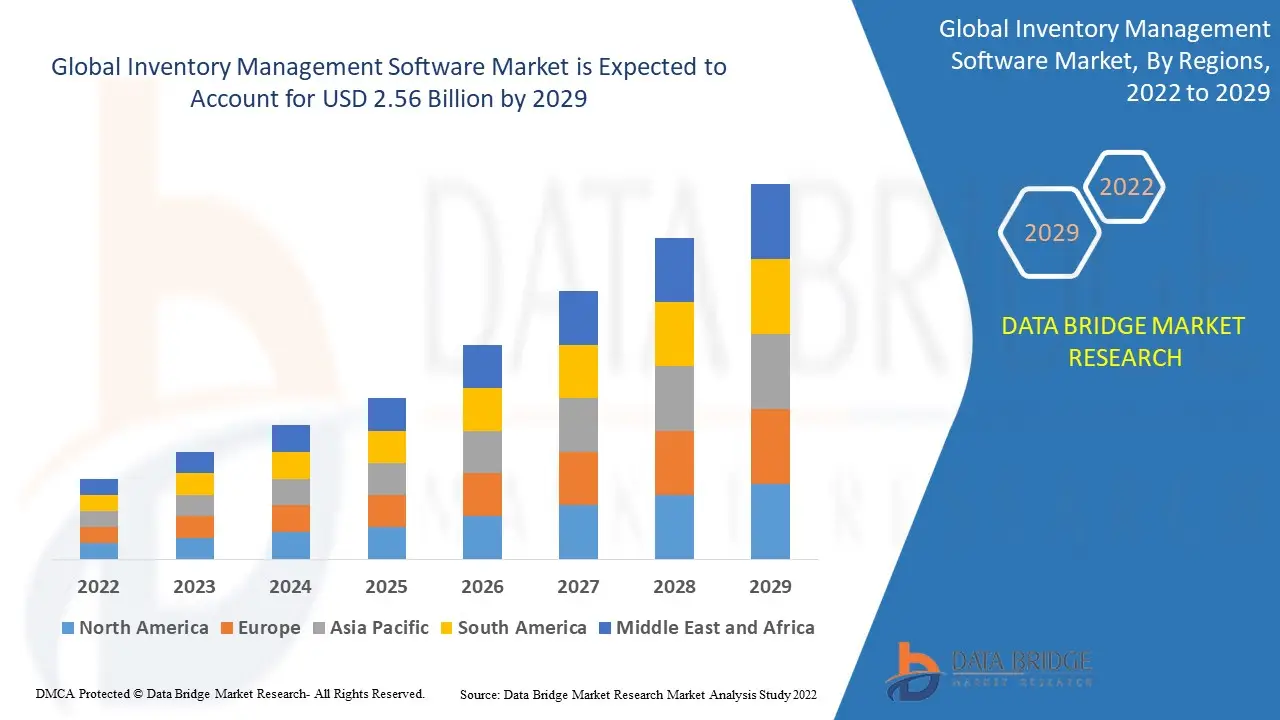
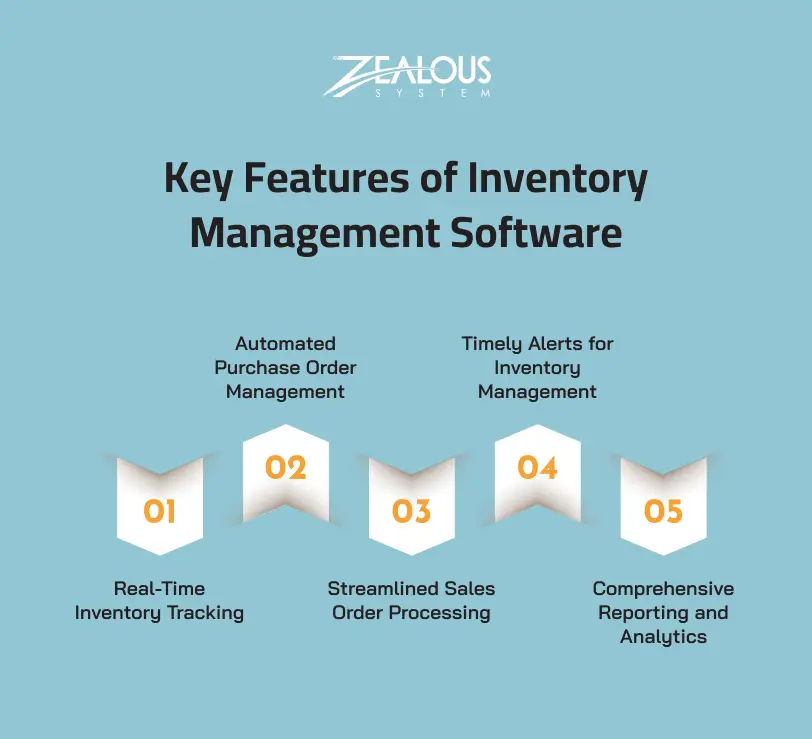
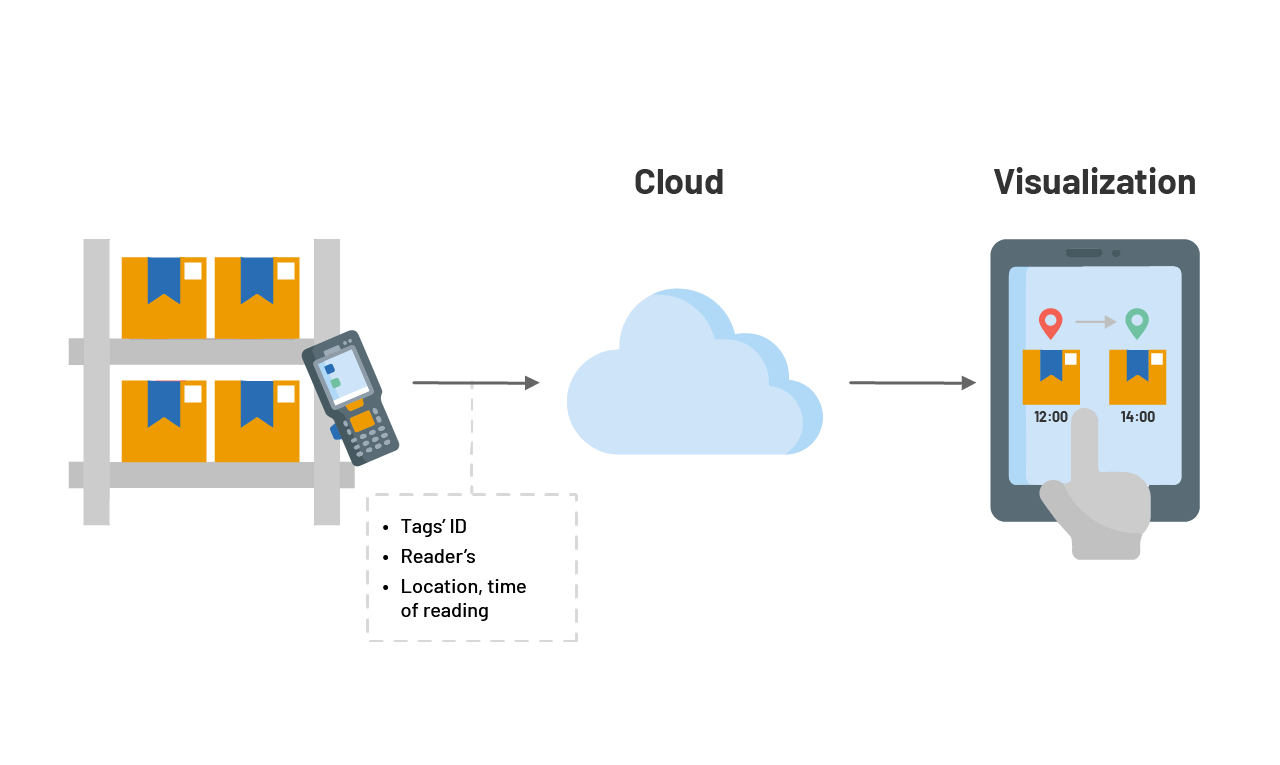
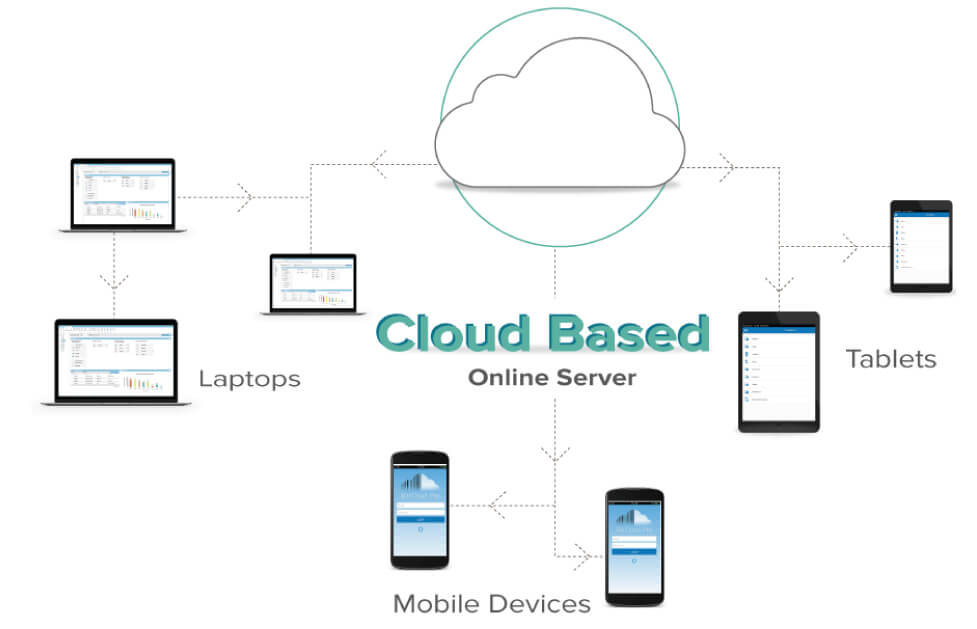
Comments